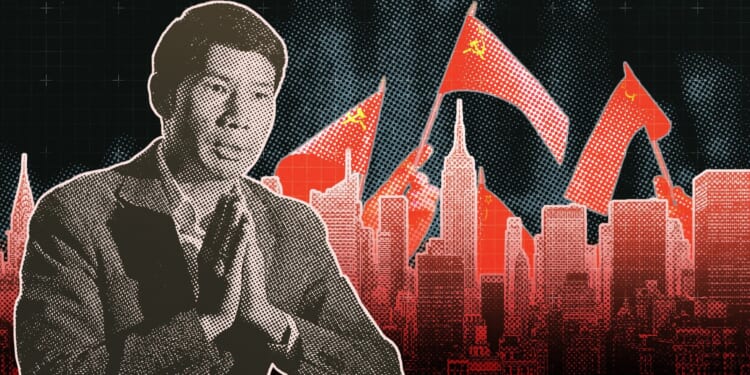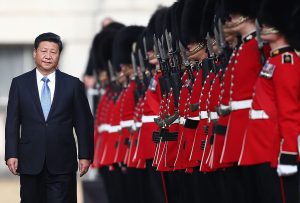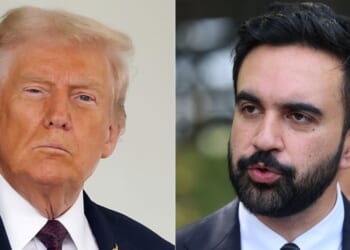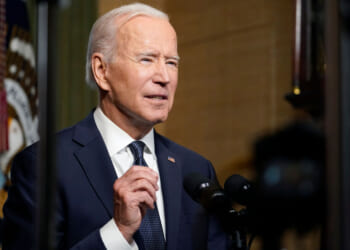The Spring Educational Group owns more independent schools in the United States than anyone else — 240 in total, across 19 states, from Montessori nurseries in California to STEM-focused elementary schools in Texas, as well as eight elite BASIS academies in Washington DC, New York and elsewhere. The schools’ websites are full of pictures of beaming children, from pre-school infants to high school seniors, with impressive claims about average SATS scores, elite university entries, and “Outstanding Mandarin Programs”.
You’d hope that the Mandarin programs would be good — given that the ultimate owner of these schools is an ardent Chinese nationalist who goes by the nickname “Red Fred”. Of course, that’s not how he’s known in the international finance circles in which he moves. On his LinkedIn page, he’s Fred Hu, the chairman and founder of Primavera Capital, a $20 billion private equity fund that owns the Spring Educational Group and its 29 school brands. His CV is blandly bluechip: spells at Goldman Sachs, the IMF and the World Economic Forum; seats on the Harvard University Global Advisory Council and the board of the Swiss bank UBS. Nothing unduly alarming to the parents of the 41,000 children who attend his institutions.
But those who have worked closely with Hu — or Hu Zuliu, as he’s known in China — have been left in little doubt about his sympathies. “Some people suspected that I was too biased towards China,” he told the Changsa Evening News in 2016, “and so they called me ‘Red Fred’.” And I can reveal that Hu and Primavera have close political and financial ties to the Chinese state and the Chinese Communist Party. So, too, do two other Chinese financial institutions that have been busy buying their way into American education: NewOpen USA and the Guanghua Education Group. The purchases conform to a deliberate strategy to spread Chinese ideology and influence into Western classrooms, which I first outlined in my recent investigation into China’s purchase of 30 independent schools in the UK. But the campaign is already much further advanced in the USA — with even Donald Trump’s former school, the New York Military Academy, now under Chinese ownership.
* * *
It’s no secret that China’s impact on educational institutions in the West is not always benign. Earlier this month, it emerged that Beijing had bullied Sheffield Hallam University into halting research into the enslavement of the persecuted Uyghur minority by threatening to withdraw its Chinese students. Laura Murphy, Professor of Human Rights and Contemporary Slavery, protested that her employers had “explicitly traded my academic freedom for access to the Chinese student market”. Chinese students, let’s not forget, annually provide more than £2.3 billion to Britain’s cash-strapped universities.
Indeed, for America too, tapping into the lucrative Chinese market makes sound financial sense. This summer, President Trump said he would be prepared to let 600,000 Chinese students study in America, which the Cato Institute estimated would bring in a windfall of around $32.1 billion. But it also happens to coincide rather nicely with a core CCP strategy of creating an education with Chinese characteristics for a generation of American schoolchildren.
Working with a Mandarin translator, I have unearthed a new document outlining this strategy — a letter issued in 2019 by China’s Ministry of Education in response to proposals aired at an official conference in Beijing. It details how after being issued “important instructions” from President Xi Jinping, 45 Chinese embassies had conducted “systematic research” on how to set up and run schools abroad to disseminate “excellent Chinese culture”. Teams working in the US, Britain, Japan, Brazil and other countries had concluded that “Chinese international schools overseas should reflect Chinese characteristics and a global perspective”. They should, the paper added, make particular efforts to attract and indoctrinate the children of Chinese expatriates.
It is significant that this document states that the Ministry was developing its strategy in collaboration with the United Front Work Department (UFWD) — a powerful, well-funded arm of the Chinese Communist Party, described by both Mao Zedong and Xi Jinping as a “magic weapon” to enhance the party’s power. The UFWD uses its $2.6 billion annual budget to conduct espionage operations, spread Chinese influence and enforce Party discipline through a web of innocuous-sounding front organisations.
Among these fronts is the Chinese People’s Political Consultative Conference (CPPCC), which convenes assemblies at national and provincial levels through which the party supposedly “consults” Chinese citizens. In reality, this is a sham. According to its own charter, CPPCC delegates are bound to do whatever the party leadership tells them to do — including “facilitate implementation of state foreign policy” and “keep state secrets”. In other words, if you’re a CPPCC delegate, you’re supposed to advance the interests of the Chinese Communist Party.
One such interlocutor is Zhou Yongyong, who heads the NewOpen China group. It was NewOpen’s US subsidiary that purchased the Florida Preparatory Academy in 2017 — the first US school to be bought by a Chinese company. Yongyong has been involved in United Front Work Department organisations, including the CPPCC, since at least 2008. Another is Allen Lu, a delegate to the Jiangsu Province CPPC. He founded the Guanghua Education Group that bought the New York Military Academy in June of this year.
And then there is “Red Fred” Hu. In 2008, two years before he founded Primavera Capital, Hu became a delegate to the Hunan Province CPPCC. He has been pictured on its website and been a delegate many times subsequently, most recently in 2023. He has also been listed as director in the Western Returned Scholars Association, a second United Front Work Department front organisation, ostensibly for Chinese students who have studied in the west. According to the The US-China Economic and Security Commission (USCC), which monitors threats from China on behalf of the US Congress, this association conducts “influence operations” and “disseminates propaganda”. Its operatives have engaged in industrial espionage, facilitating the transfer of sensitive technologies from America to China.
Last year, when the Daily Caller published details of Hu’s involvement with the CPPCC, Primavera Capital issued a statement claiming he was not a member of the Chinese Communist Party, nor an adviser to the Chinese government. Yet Hu’s own professional biographies state that he does advise the government. Moreover, even if he is not a party member, his connections to it and the Chinese state are both political and financial.
When Hu founded Primavera Capital in 2009, he accepted millions of dollars of investment from corporations closely connected to the Chinese state, including Tianjin Huida Enterprise Management, a subsidiary of the state-owned Bank of China, and Ping An Life, China’s biggest insurance company. Primavera’s founding partner Zhao Haotai and its managing director, David Lin, also have close links to the Chinese state. Lin previously worked for a subsidiary of CITIC, the Chinese International Trust Investment Corporation, a state-owned investment firm that has invested in new technologies used to repress dissidents and minorities.
And Hu has in turn lent his expertise to various institutions closely connected to the Chinese state. Until he stepped down in April 2025, he was a non-executive director of the Industrial and Commercial Bank of China, which is 70% owned by the Chinese government. And in 2007, he helped set up the China Investment Corporation, China’s state-owned foreign reserves fund, which now has assets of over $1 trillion. He has meanwhile invested heavily in the AI start up, SenseTime, whose other major backer is the Chinese state. SenseTime was sanctioned by Joe Biden’s administration in 2022 on the grounds that its AI-powered facial recognition technology was being deployed to monitor and oppress the Uyghurs. Primavera’s stake in it is worth around $500 million.
Naturally, when he addresses Western audiences, Hu is keen to dismiss any concerns. America, he wrote in a Washington Post op-ed during the first Trump administration, was “overly paranoid” about China’s rise, and its fears were “unfounded”. America should see China as an opportunity, not a threat, and encourage “virtuous, two-way capital flows”.
He presents a rather different face when he’s talking to a Chinese audience. In an interview for a newsletter for graduates of Tsinghua University, where he gained his masters (and where Xi Jinping studied before him), Hu said that his personal “hero” was the 19th-century general Zuo Zongtang, who crushed the Taiping rebellion at a cost of 30 million lives, going on to fight the Hui war against western Chinese Muslims — the forerunners of the Uyghurs. “If I hadn’t studied economics, I would have wanted to be a great general like Zuo Zongtang, expanding the country’s territory,” Hu said. (Hu, the Primavera Group and NewOpen have not responded to my requests for comment).
There is, naturally, no mention of any of this on the website of the Spring Education Group (SEG). There is instead lots of talk of the “web of trust between our students, our families and our communities” and how its mission is “to develop the best schools and educators in America” with a “perfect balance of work and play”. Since 2017, SEG has been acquiring an ever-expanding schools portfolio, covering every age group from kindergarten upwards. Indeed, it is still on the lookout for more: the website even has a page that tells other school owners how to get in touch if they’d like to sell.
Are American parents concerned about this? From time to time, their disquiet surfaces. In 2019, for example, almost 200 parents whose children attended a BASIS school in Brooklyn, signed a joint letter about its sale to Primavera, expressing fears that its curriculum might change. They were assured it would not.
Then again, money plays a decisive factor in the decisions parents take regarding their children’s K12 education. While it’s no secret that Chinese companies have been buying up American independent schools since 2017, parents often seem relatively untroubled by this, for the simple reason the fees are often significantly lower than competitors. BASIS Brooklyn, for example, is around $20,000 less per year than comparable nearby schools. Some parents are also persuaded that a more Asian-influenced education — with a strong focus on STEM and perhaps some Mandarin lessons too — will prove a more rigorous training ground for the 21st-century economy.
One mother in Washington told me that she had been planning to send her son to a BASIS school because it seems like good value. “When you first look at the schools’ rankings versus cost, you’re like: ‘Wow, sweet deal!’ But then you realise why it’s such a sweet deal. I’ve joked with friends that I guess the upside is, if my kid went there, he’d be 100% prepared to keep the rest of the family out of CCP re-education camps when China takes over!”
America’s political class does occasionally raise objections — if not as often as you’d think, given the Trump administration’s rhetorical war with China. In 2023, Florida’s Republican governor Ron DeSantis ordered the state’s education department to suspend public scholarships for students at four schools owned by Primavera, citing its “direct ties” to the CCP. Last year, the Republican Arkansas Senator, Tom Cotton, wrote to the then-Defense Secretary Lloyd Austin, saying that Primavera Capital’s ownership of Tutor.com was a national security risk as it gave a Chinese company the personal data of armed service members and their children. His call was echoed by the Louisiana Republican Senator Bill Cassidy, who demanded a “complete accounting” of the firm’s relationship with its Chinese owners — it may well have been this that prompted Primavera to quietly sell Tutor.com in September.
Nevertheless, to date, there has been little sign of official action to restrict the influence of school owners connected to the Chinese Communist Party. Primavera’s fees may be relatively cheap, but there’s a more serious price to be paid as America sells off control of its institutions.
a.appcomments {
background: #FFF;
border: 1px solid #446c76 !important;
font-family: benton-sans,sans-serif;
font-weight: 600;
font-style: normal;
font-size: 12px;
color: #446c76 !important;
padding: 12px 50px;
text-transform: uppercase;
letter-spacing: 1.5px;
text-decoration: none;
width: 100%;
display: block;
text-align: center !important;
}



















